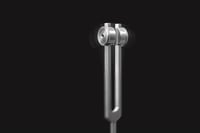
3 sources of commercial inefficiency related to the sales process
In manufacturing companies, production departments are generally efficient and effective. Unfortunately, most sales departments are not.
In a way, it's reasonable that manufacturing processes are easier to improve than those related to less reproducible elements. However, there are many opportunities to optimize the performance of sales teams, starting with viewing this department as a machine to generate income.
Here are the most significant sources of inefficiency related to the sales process and how to improve them:
1. Lack of a formal sales process
The share of SMEs that have a formal sales process is around 25%. This figure was only 8% in 2016 - there is still a long way to go!
A formal sales process:
- is written;
- includes specific steps to be performed in a given sequence;
- includes milestones that make it possible to objectively quantify the probability of a positive outcome.
The quality of your sales process and the ability of your team to execute it effectively represents a significant competitive advantage—especially in a world where buyers have changed their buying behaviors.
How to be more efficient with a good sales process?
- If you lack a formal sales process, and each salesperson follows their own "recipe," don't wait to build a milestone-based process. One example from the field is the methodology of sales by baseball.
- If you have a process that is followed by your team, use the data provided by your CRM to identify the areas where you lose opportunities, where they stall, and optimize your process. If your process isn't integrated into your CRM, you will need to make it so to collect data for optimization purposes.
- If you're unsure, spend time with your salespeople to see how they conduct their sales meetings and also ask them to explain their process to you. If you notice discrepancies between what your people tell you, return to point one.
2. Lack of measurement of sales process effectiveness
As mentioned above, it is essential to be able to measure the effectiveness of your sales process within your CRM. A sales process is not static, as customers evolve, and your business needs to adapt quickly.
When you set up a formal sales process, the number one goal is to achieve better sales performance by replicating a winning recipe. However, certain stages of the sales process may create friction and cause the loss of opportunities. You need to understand, based on objective data, what causes you to succeed, and what causes you to fail.
How to measure the efficiency of your sales process and identify weak points?
You will need a well designed CRM system so that:
- You are able to configure your process without being limited by the system;
- You achieve an adoption rate of more than 75% within your team;
- You can intelligently calculate the probability of winning each deal in your pipeline;
- You can analyze the conversion ratios between each milestone in the process (not just stages);
- Your salespeople keep the CRM up to date (advancing opportunities by following the process, disqualifying opportunities, etc.).
This above list may seem long to you, but a well-designed CRM will be your ally.
3. Lack of coaching to execute the sales process properly
Coaching is the number one factor to impact the performance of salespeople. If you are a sales manager or a sales leader and you want to improve results, you cannot achieve it without coaching your people.
What we have seen with all the companies that we've work with is that, even if you have the best salespeople, the best tools, and the best sales process, coaching is what makes the biggest difference. It is what makes or breaks a sales team. Sales managers are, therefore, the lever for sales team performance.
Are you already coaching?
Congratulations! That's excellent. Can you coach more and better? Here are some tips:
- Do you coach at least one salesperson every day?
- Do you coach your salespeople before they meet new potential customers?
- Are you debriefing customer meetings?
- Do you roleplay with your salespeople?
- Do you coach, or do you advise?
- Do you have a coach to coach you?
Are you not coaching your salespeople?
Don't wait to start! Effective coaching should be short but high frequency. Here's how to get started:
- Ask your salespeople (individually) what their next meetings are with new potential customers. Let them know you want to prepare these meetings with them.
- Put yourself in the right frame of mind: in coaching, you don't need to provide answers, but to ask questions!
By focusing on these three areas, you will significantly improve the effectiveness of your sales team!

By Frédéric Lucas
Entrepreneur, business owner, speaker, trainer, coach, adviser, blogger and expert about sales force performance and business growth… I'm all of it and none of it at the same time. Want to know why? I take an integrated approach to know where your company needs help to get from where it is right now to where you wanted to be. My clients know me for telling them what they need to hear, instead of what they want to hear. They value the depth of my expertise, the science behind my framework and the predictability of my insights. While most try to fix salespeople by working on factors that influence sales, I concentrate first on the scientific causes of underachievement and overachievement of sales organizations. I build profitable sales culture by working on the essential components that increase an organizations probability of generating profitable sales.
Find out more about Frédéric Lucas on LinkedIn







